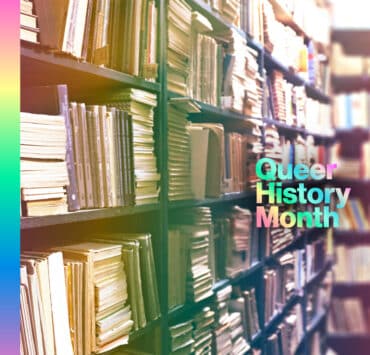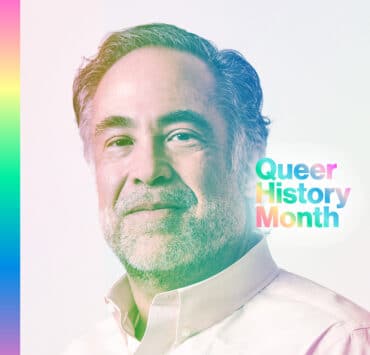|
Getting your Trinity Audio player ready...
|
LGBTQ+ Latinx activists have long been at the forefront of advancing both queer and Latinx communities, often navigating the intersections of multiple oppressions. These trailblazers haven’t just fought for equality; they’ve also built movements that elevate their communities while challenging systemic injustice. Their work, from icons like Sylvia Rivera and Gloria Evangelina Anzaldúa to current leaders like Jennicet Gutiérrez and Julio Salgado, has shaped the course of LGBTQ+ history.
As we celebrate LGBTQ+ History Month, it’s crucial to honor both the legacy and the ongoing contributions of these remarkable figures.
Gloria Evangelina Anzaldúa
Gloria Evangelina Anzaldúa was a pioneering writer, professor, and scholar whose work reshaped Chicana feminism, cultural theory, and queer theory. She coedited the influential anthology This Bridge Called My Back: Writings by Radical Women of Color and authored the groundbreaking Borderlands/La Frontera: The New Mestiza, reflecting on her experiences growing up on the Mexico-Texas border. Anzaldúa’s writing confronted social and cultural marginalization, especially as it impacted Latinx and LGBTQ+ communities. Her essays laid the foundation for Latinx philosophy and created space for Hispanic and non-Hispanic LGBTQ+ individuals to come together, using storytelling to explore intersectional identities and social justice.
Lorena Borjas
Lorena Borjas, often called the mother of the transgender Latinx community in Queens, New York, dedicated her life to protecting immigrant and transgender communities. After emigrating from Veracruz, Mexico, Borjas tirelessly advocated for transgender victims of human trafficking and supported transgender sex workers. Her work was deeply personal, rooted in her own experiences as a trafficking survivor. Borjas provided food, shelter, and HIV testing to vulnerable trans women and fought for their legal rights, including setting up a bail fund for LGBTQ+ defendants. Her efforts earned her the title of community leader, and her legacy lives on through the lives she touched.
Gil Cuadros
Gil Cuadros was a groundbreaking gay Latino writer whose work illuminated the intersections of sexuality, race, and the AIDS crisis. Diagnosed with HIV in 1987 after the loss of his partner, Cuadros channeled his experiences into his acclaimed collection City of God. His writing captured the emotional toll of living with a life-threatening illness while navigating his Latino heritage and gay identity. A recipient of the PEN Center USA/West grant for writers with HIV, Cuadros’s work, including poetry and short stories, remains a vital part of Chicano literature, offering an unflinching portrayal of marginalized communities.
Julio Salgado
Julio Salgado is a gay, Mexican-born artist whose work centers on the experiences of undocumented and queer individuals, including his own. His influential series—“I Am UndocuQueer!”—amplifies the voices of undocumented queer people, bringing visibility to their struggles within the migrant rights movement. As the cofounder of Dreamers Adrift, a YouTube channel dedicated to telling undocumented stories, Salgado combines activism and art to challenge anti-immigrant hate. His work is recognized nationwide, with exhibitions at the Oakland Museum and the Smithsonian, and he continues to serve as a powerful voice for the undocumented and LGBTQ+ communities.
José Julia Sarria
José Julio Sarria made history as the first openly gay candidate to run for public office in the United States when he campaigned for the San Francisco Board of Supervisors in 1961. Although he didn’t win, his groundbreaking candidacy proved the political power of queer voters. Born to Colombian and Nicaraguan parents, Sarria was also a beloved drag performer at the Black Cat Bar, where he became known as “The Nightingale of Montgomery Street.” A tireless advocate for LGBTQ+ rights, he cofounded the Imperial Court System, a charitable organization that endures today, and left an indelible mark on the movement for equality.
Sylvia Rivera
Sylvia Rivera, a pioneering transgender and civil rights activist of Puerto Rican and Venezuelan descent, played a vital role in the LGBTQ+ movement. Known as the “Mother of the Movement” and often called the “Rosa Parks of the modern transgender movement,” Rivera was instrumental in the 1969 Stonewall riots and beyond. She cofounded Street Transvestite Action Revolutionaries (STAR) with Marsha P. Johnson, providing support for queer youth and sex workers. Throughout her life, Rivera fought for the most marginalized, including homeless LGBTQ+ youth, trans women, and people of color, leaving a legacy of advocacy for unity, justice, and inclusion.
Arely Westley
Arely Westley is a trans Latina activist from Honduras who has become a prominent advocate for LGBTQ+ and immigrant rights in Louisiana. As the campaign director at BreakOUT!, a New Orleans-based organization empowering Black and Latinx transgender and gender nonconforming youth, Westley works to end the criminalization of LGBTQ+ youth and build youth leadership. Her activism is deeply personal—having experienced the harsh realities of ICE detention, she now fights to shut down abusive facilities and ensure humane treatment for detainees. Recognized with the Robert F. Kennedy Human Rights Award in 2024, Westley’s work underscores the intersection of LGBTQ+ and immigrant rights.
Laura Esquivel
Laura Esquivel, often referred to as “La Madre” of the Latino LGBT movement, is a lifelong activist and cofounder of Latino(a) Lesbian and Gay Organization (LLEGÓ). For over twenty-five years, she has advocated for LGBTQ+ rights, immigration reform, and labor justice. In 1984, Esquivel became the first female president of Gay and Lesbian Latinos Unidos, and she played a pivotal role in founding other national Latino LGBTQ+ organizations. Her activism extended to environmental justice, where she continues to champion civil rights and climate policy at Earthjustice. Esquivel’s leadership has bridged Latino and LGBTQ+ communities, cementing her legacy as a powerful advocate for change.
Dennis deLeon
Dennis deLeon was a trailblazing human rights leader and HIV/AIDS activist who became a powerful voice for the Hispanic community during the AIDS crisis. As president of the Latino Commission on AIDS starting in 1994, deLeon expanded the organization’s reach, partnering with hundreds of groups to combat the spread of HIV/AIDS in Latino communities. He was instrumental in translating critical HIV information into Spanish and building prevention networks with Spanish-speaking churches. In 1993, deLeon courageously revealed his own HIV-positive status in a New York Times op-ed, becoming one of the first public officials to do so, championing hope and change.
Horacio Roque Ramírez
Horacio Roque Ramírez was a Salvadoran American writer, advocate, and oral historian whose work centered on LGBTQIA+ Latinx communities, particularly the experiences of Central American immigrants. As one of the first historians to document the lives of gay Latinos in San Francisco’s Mission District, he brought attention to marginalized voices. Roque Ramírez’s scholarship focused on political struggle, identity, and community narratives, recognizing the complexity of intersecting burdens faced by queer, immigrant, and impoverished individuals. His dedication to chronicling these histories, including through the formation of queer archives, leaves a lasting legacy of advocacy and representation for underrepresented communities.
Bamby Salcedo and Queen Victoria Ortega
Bamby Salcedo and Queen Victoria Ortega are leading trans Latina activists dedicated to fighting for the empowerment and survival of trans and gender-nonconforming communities. Ortega, president of FLUX, focuses on building trans-led nonprofits and creating a sense of history and future for trans people. Salcedo, president and CEO of the TransLatin@ Coalition (TLC), has transformed her personal struggles into advocacy for trans Latina immigrant women, turning TLC into a national force for legislative change and support services. Together, these women have collaborated for over a decade, pushing their communities toward not just survival, but leadership and success. Read their 2021 Visibility Feature
William Brandon Lacy Campos
William Brandon Lacy Campos was a powerful spoken word poet, activist, and advocate for Black and Latino queer communities. As the founding chair of the Green Party’s LGBTQIA+ caucus and the executive director of Queers for Economic Justice, he fought tirelessly for social justice. Living with HIV from his mid-twenties, Campos used his platform to raise awareness about the stigma surrounding the disease, advocating for HIV to be central to reproductive justice. His poetry collection It Ain’t Truth If It Doesn’t Hurt and his raw, honest blogging left a lasting impact on LGBTQ+ and HIV-positive communities before his untimely passing in 2012.
Jennicet Gutiérrez
Jennicet Gutiérrez is a transgender immigrant Latina from Tuxpan, Jalisco, and a fearless advocate for trans and immigrant rights. In 2015, she made national headlines by interrupting President Obama during a White House Pride event to call attention to the abuse faced by detained transgender immigrants. As a founding member of La Familia: Trans Queer Liberation Movement, Gutiérrez organizes at the intersection of LGBTQ+ rights, migrant justice, and racial equity. Her activism centers on the liberation of trans and queer Latinx communities, focusing on ending the deportation and detention of transgender immigrants of color.
Isa Noyola
Isa Noyola is a trailblazing trans Latina activist of Mexican descent, known for her national leadership in the LGBTQ+ immigrant rights movement. As deputy director at both the Transgender Law Center and Mijente, she has worked tirelessly for racial, economic, gender, and climate justice. In 2015, Noyola organized the first national protest against transgender violence, highlighting the struggles faced by trans women of color. A fierce advocate for the release of trans women from ICE detention centers, she also founded El/La Para TransLatinas, an organization supporting trans-Latinas. Noyola’s activism challenges oppressive systems while building empowered communities for all women.
—
This article was written with the assistance of AI.

